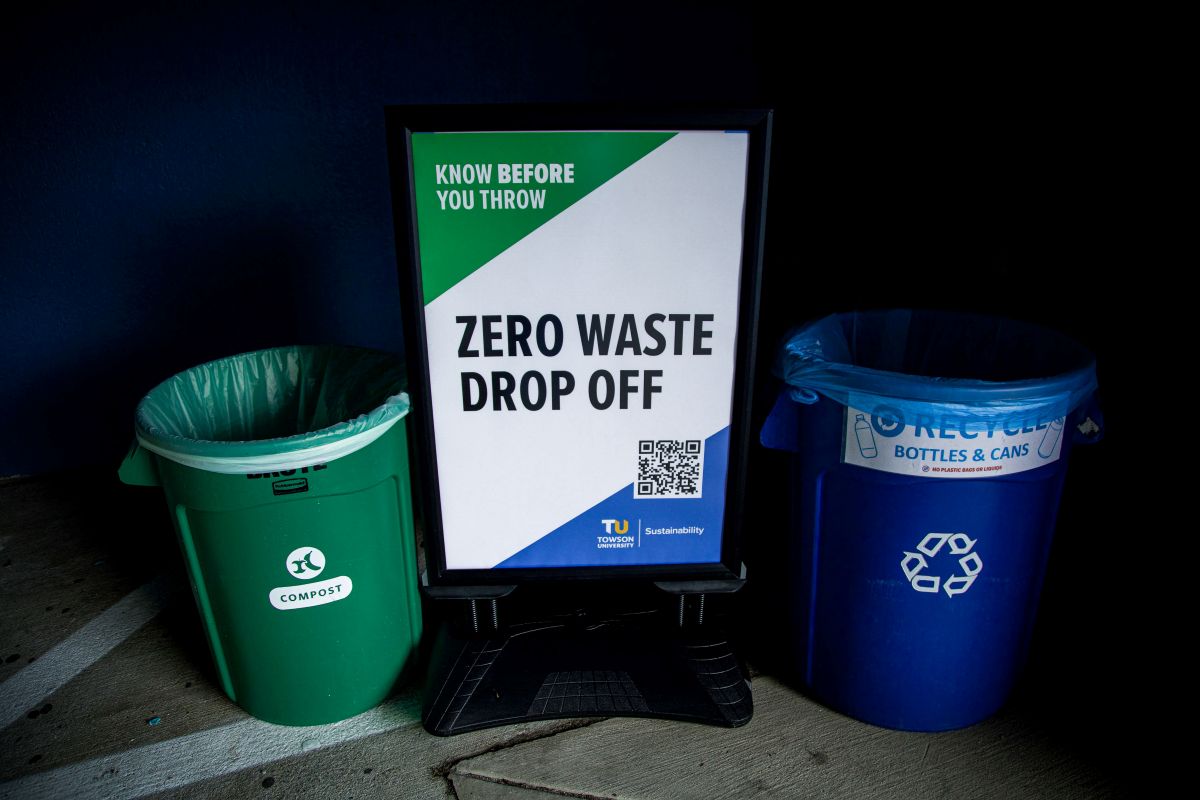
Towson University preps a new sustainability action plan
By Martina Casamajo, Contributing Writer
Towson University is preparing to release the first draft of its new Sustainability & Climate Action Plan, known as SCAP, this semester. The university’s Office of Sustainability is the lead for the developing project.
The SCAP will provide a roadmap for the university to reach goals such as mitigating greenhouse gas emissions, adapting to climate impacts and improving campus sustainability. It is a sub-plan for the Campus Master Plan, a 10-year outlook of investments for the sustainable development of Towson.
Towson’s sustainability office has been working with their consultants, the University of Maryland College Park Environmental Finance Center, to conduct a lot of desktop research on best practices and for sustainability goals.
“So, with that, we were using all that prework to help put us in a really great position to start the conversation and create some justifications around the goals that we were establishing,” Patricia Watson, director of Sustainability, said.
The office expects to share a first draft of the plan by the end of the semester, according to Watson.
“This work is happening, has been happening, will continue to happen,” Watson said. “This plan is supposed to highlight a lot of that work, provide a good foundation, and be used as a communication point.”
There are many ways students can engage with the development of the sustainability plan. In early October the sustainability office held a tabling event to gather student input.
“We had a living wall event at Freedom Square, were students were able to come up and rank climate action options, they were able to leave their comments or … their own organic ideas,” Beth Schap, the sustainability outreach coordinator, said.
Students can still give feedback on sustainability concerns through the online SCAP Living Wall.
“We really have tried to let the students know about these opportunities, but students are very busy with academics, possible jobs, family obligations, and their own organizations,” Schap said. “So we’re still trying to crack that code with getting student engagement on campus.”
Senior Steven Vrolijk, co-president of Towson’s Student Environmental Organization, said he has noticed the sustainability office’s efforts to engage the student body and keep them informed about the upcoming projects.
“They do a lot of stuff, but it’s hard to reach out, especially to people who don’t care,” Vrolijk said. “So it’s hard to reach people that don’t really care to be reached.”
